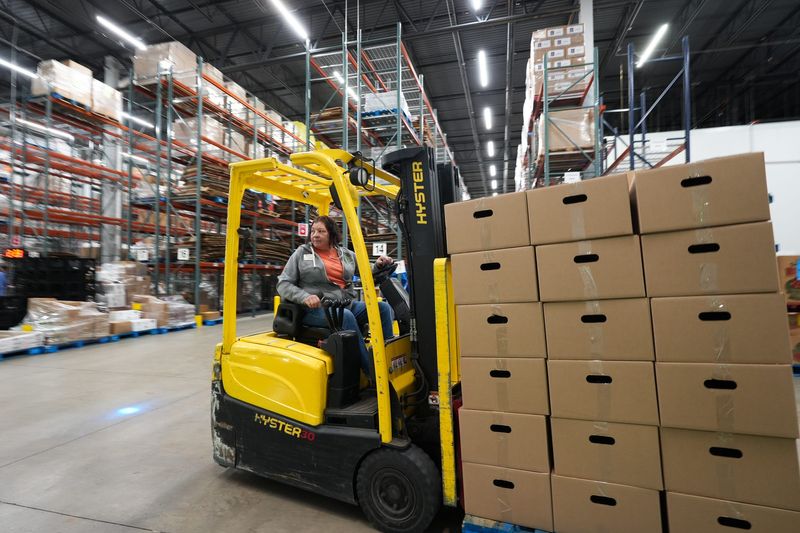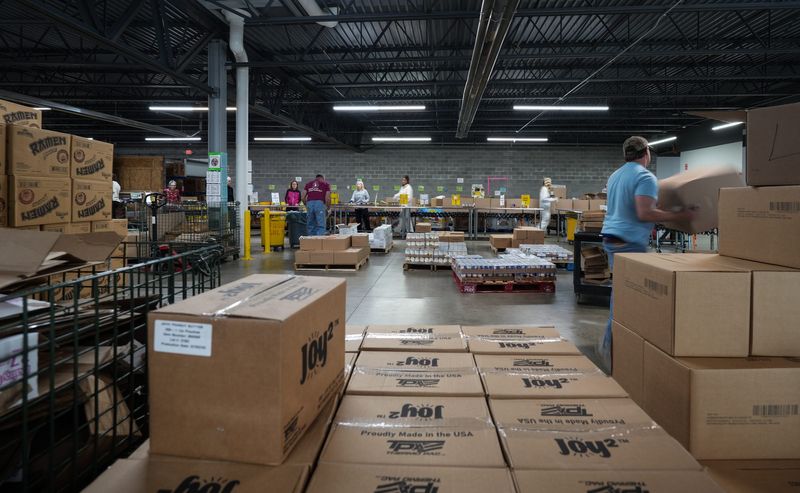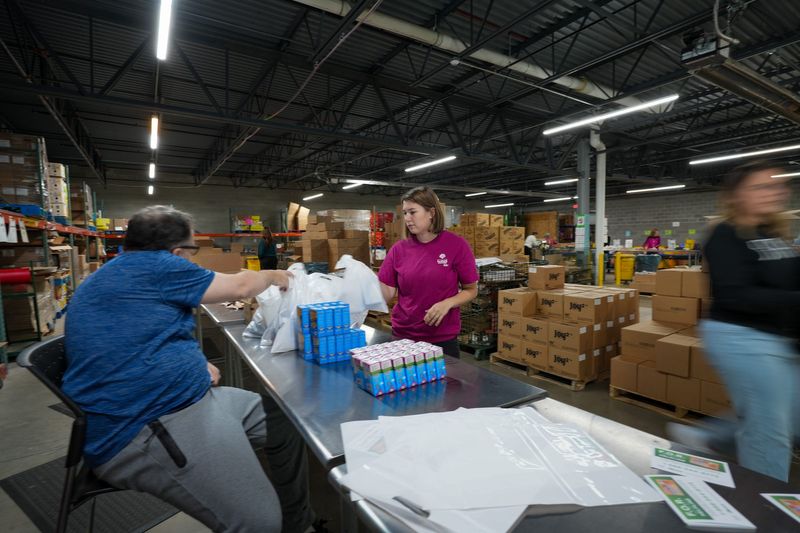LANSING — Nearly a month into the government shutdown, an estimated 1.4 million Michigan residents are likely to see a pause in food assistance benefits on Nov. 1, an interruption that is expected to exacerbate a growing need for food in Michigan.
Katlyn Cardoso, manager of marketing and communications for the Greater Lansing Food Bank, said the agency was already dealing with higher than normal requests for food assistance.

Cardoso said among the organization’s 300 partner agencies in a seven-county region around Lansing, 23,247 households received food assistance in September. That number will likely rise in November.
Between Ingham, Eaton and Clinton counties alone, more than 63,000 people were estimated to have been receiving SNAP benefits in 2022, the most recent data available, according to the Federal Reserve Bank of St. Louis.
That includes more than 492,000 children statewide who benefited from food assistance, according to MDHHS. In the 2024 fiscal year, the average Michigan household receiving SNAP benefits got about $335 a month.
Cardoso said that this isn’t the food bank’s first time experiencing a government shutdown, but that there’s no way to know what to expect until the loss of benefits has actually happened.
“There’s a lot that unfortunately, you can’t really know until we’re in it and experiencing it,” Cardoso said. “We know that SNAP is a really critical resource for working families and seniors and children here in Michigan and nationwide to ensure that they have consistent access to the food that they need to live a full and healthy life.”
The U.S. Department of Agriculture called for state agencies, like the Michigan Department of Health and Human Services, to pause SNAP benefits for November as the government shutdown continues, impacting an estimated 42 million throughout the country.
Since Oct. 1, the government has been in a shutdown, with more than 700,000 federal workers being furloughed, with a similar number continuing to work without pay.
The shutdown, which is currently the second-longest in history, has persisted because a budget has not been approved. Democrats are fighting for tax breaks for Americans buying insurance through the Affordable Care Act, which are otherwise set to expire at the end of the year. Republicans say they want to address the issue after the budget is passed.
MORE: Michigan House Democrats unveil plan to fund SNAP amid federal government shutdown
Community, state leaders react
Cardoso said the state association is staying closely in communication with peer food banks across the state. She added that the partner food banks will be the ones working to keep everyone up to date on what need exists in real time.
“We’re trying to make sure we’re providing a voice of stability and reassurance for neighbors because there is so much uncertainty and so much information out there,” she said.
She said the most recent information related to the government shutdown can be found on the website at glfoodbank.org/shutdown.
People who are in need of assistance from the food bank can visit glfoodbank.org/gethelp to find the nearest food pantries and distribution centers. People enrolled in SNAP benefits should expect to hear about updates directly from the MDHHS, Cardoso said.
She added that the food bank is able to stretch donations further than someone might be able to just by visiting a grocery store, and that they can stretch $1 into multiple meals for people in need. She asked people interested in helping their neighbors to donate to the food bank.
Democrats push for reinstatement
On Monday, Oct. 27, a team of six Michigan Democrats, including Representatives Hillary Scholten of Grand Rapids, Kristen McDonald Rivet of Bay City, Shri Thanedar of Detroit, Haley Stevens of Birmingham, Rashida Tlaib of Detroit, and Debbie Dingell of Ann Arbor wrote a letter to Department of Agriculture Secretary Brooke Rollins, calling upon the USDA to tap into its contingency fund for SNAP benefits.
In the letter, they wrote that pausing the SNAP benefits puts “Michigan’s most vulnerable in harm’s way,” highlighting that nearly 50% of recipients in the state are families with children, and 40% are families with older adults or people with disabilities.
“We stand ready to reopen the government; however, should political games prevail, we must work together to ensure that SNAP benefits flow to Michigan to safeguard access to food,” they wrote. “We are committed to putting communities across Michigan above partisan fighting. We urge the USDA and the Trump Administration to draw down SNAP contingency funds to provide benefits to eligible families.”
According to Axios, the USDA confirmed via a memo that the department’s $5 billion contingency fund would not be used to maintain the SNAP program.
The USDA website is decorated with a banner at the top of the page saying appropriations will not be issued Nov. 1 and blaming Democratic lawmakers for the government shutdown.
“Bottom line, the well has run dry,” the banner reads.
On Oct. 28, officials from 25 Democratic-led states and the District of Columbia, including Michigan, filed a lawsuit to stop President Donald Trump’s administration from suspending food aid benefits.
Long-term consequences expected
Kate Bauer, an associate professor of nutritional sciences at the University of Michigan School of Public Health, has expertise in SNAP benefits, school meals and other forms of aid in nutritional security, according to an advisory from the University of Michigan.
She said that families who receive SNAP benefits could face long-term consequences because of the pause.
More than a third of SNAP households in Michigan have older adults while nearly half include children, according to Bauer’s research.
“Low-income families are constantly juggling their bills, because so many jobs don’t pay enough for people to keep up,” Bauer said in the statement. “A loss of $335 of SNAP benefits means that money from other places now has to pay for food. It means that some families may not be able to pay their rent, that their electricity gets turned off or that they can’t repair the car that they depend on to get to work. This pause will have long-term consequences for many families.”
Because SNAP benefits go to local retailers, the loss has effects beyond just the recipients, she added.
Nushrat Rahman and Susan Selasky from the Detroit Free Press and Reuters contributed. Contact Karly Graham at kgraham@lsj.com. Follow her on X at @KarlyGrahamJrn.
This article originally appeared on Lansing State Journal: Food need expected to grow if SNAP money ends for 63,000 Lansing area residents
Reporting by Karly Graham, Lansing State Journal / Lansing State Journal
USA TODAY Network via Reuters Connect





